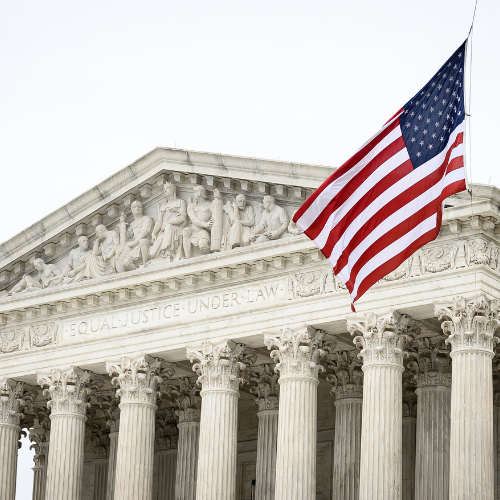(Liberty Matters News Service) On June 23, 2021, the U.S. Supreme Court issued a landmark ruling protecting property rights in Cedar Point Nursery v. Hassid. The court found that a California regulation granting access to private property by Union organizers is unconstitutional, and “constitutes a per se physical taking.”
The case was brought by two California growers, Cedar Point Nursery and Fowler Packing Company, and litigated by the Pacific Legal Foundation. The growers challenged a California regulation that required the landowners to allow Union organizers access to their private property for three hours a day. The court summarized its ruling as follows:
“California’s access regulation appropriates a right to invade the growers’ property and therefore constitutes a per se physical taking. Rather than restraining the growers’ use of their own property, the regulation appropriates for the enjoyment of third parties (here union organizers) the owners’ right to exclude. The right to exclude is “a fundamental element of the property right.” Kaiser Aetna v. United States, 444 U. S. 164, 179–180. The Court’s precedents have thus treated government-authorized physical invasions as takings requiring just compensation. As in previous cases, the government here has appropriated a right of access to private property. Because the regulation appropriates a right to physically invade the growers’ property—to literally “take access”—it constitutes a per se physical taking under the Court’s precedents.” (Cedar Point Nursery v. Hassid, Syllabus, page 2)
The opinion was written by Chief Justice Roberts and joined by Justices Thomas, Alito, Gorsuch, Kavanaugh and Barrett for a 6-3 majority ruling.
The Court further explained its reasoning:
“The Takings Clause of the Fifth Amendment, applicable to the States through the Fourteenth Amendment, provides: ‘[N]or shall private property be taken for public use, without just compensation.’ The Founders recognized that the protection of private property is indispensable to the promotion of individual freedom. As John Adams tersely put it, ‘[p]roperty must be secured, or liberty cannot exist.’ Discourses on Davila, in 6 Works of John Adams 280 (C. Adams ed. 1851). This Court agrees, having noted that protection of property rights is ‘necessary to preserve freedom’ and ‘empowers persons to shape and to plan their own destiny in a world where governments are always eager to do so for them.’” (Cedar Point, page 5)
The court notes that the right to exclude others from accessing their property is a necessary right:
“The right to exclude is ‘one of the most treasured’ rights of property ownership. Loretto v. Teleprompter Manhattan CATV Corp., 458 U. S. 419, 435 (1982). According to Blackstone, the very idea of property entails ‘that sole and despotic dominion which one man claims and exercises over the external things of the world, in total exclusion of the right of any other individual in the universe.’ 2 W. Blackstone, Commentaries on the Laws of England 2 (1766). In less exuberant terms, we have stated that the right to exclude is ‘universally held to be a fundamental element of the property right,’ and is ‘one of the most essential sticks in the bundle of rights that are commonly characterized as property.’” (Cedar Point, page 7)
The ruling could not be more timely as the Biden Administration seeks new ways to use federal programs to control and restrict land use in the names of “protection” and “conservation.”


